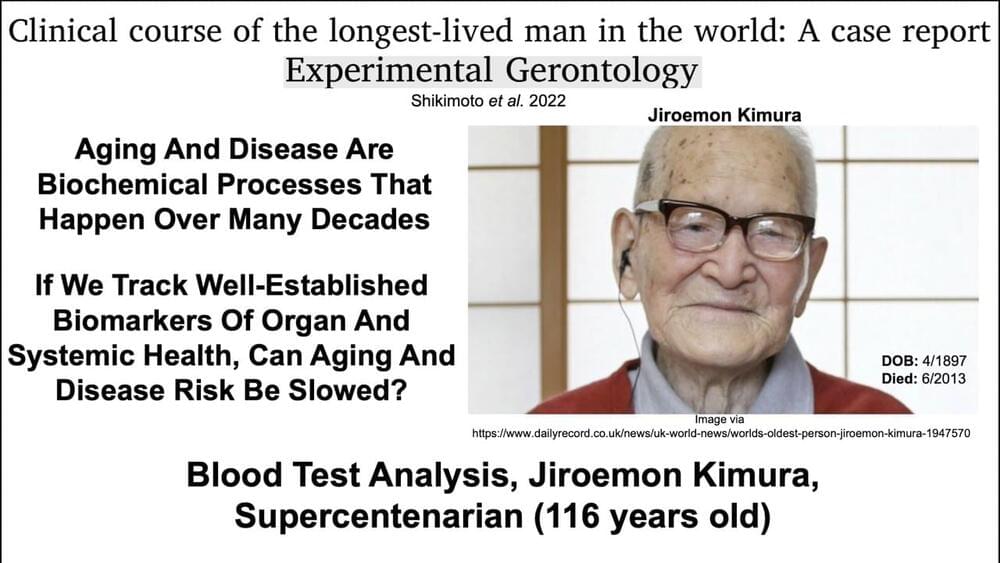Jan 23, 2022
Supercentenarian (112 — 116y) Blood Test Analysis
Posted by Mike Lustgarten in categories: biotech/medical, life extension, sex
Join us on Patreon!
https://www.patreon.com/MichaelLustgartenPhD
Papers referenced in the video:
Main study:
Clinical course of the longest-lived man in the world: A case report.
https://pubmed.ncbi.nlm.nih.gov/34973348/
Continue reading “Supercentenarian (112 — 116y) Blood Test Analysis” »

















